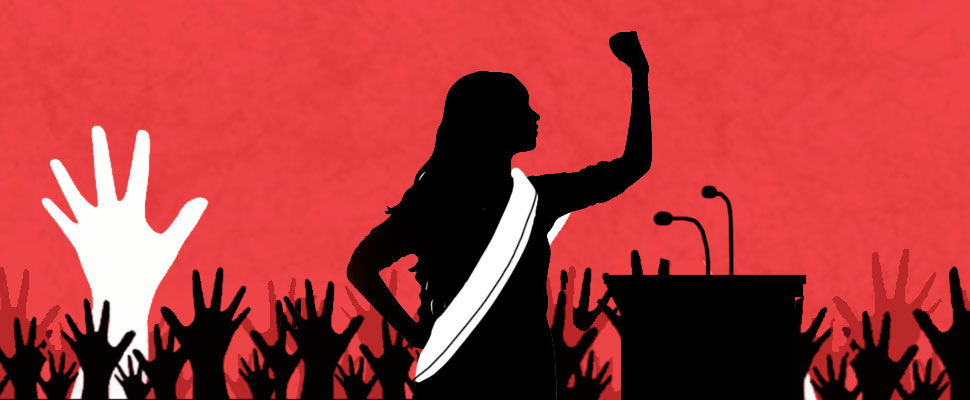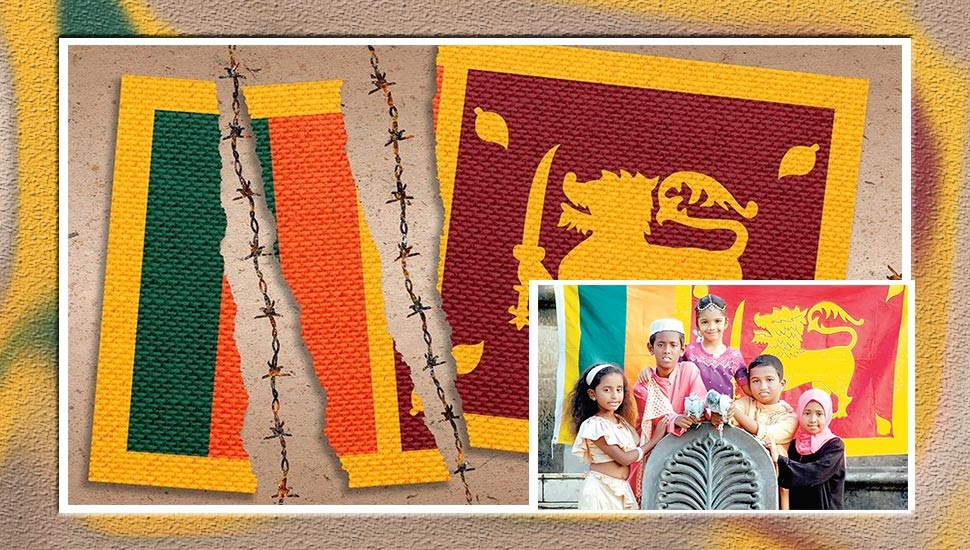- Controlling social media is like trying to clean the ocean with a bucket: Mahinda Deshapriya
- Misinformation spreads fast, say watchdogs
Until a rash of pages impersonating her emerged in a coordinated misinformation campaign on Facebook, first-time election candidate Sashikala Raviraj had no idea how powerful the impact of social media could be.
Numerous misleading and obscene posts about her and other candidates of her party have appeared on newly-created fake IDs on Facebook and are being shared across other social media.
Some of the posts questioned her sincerity in wanting to serve the public, citing the length of time since the assassination of her husband, Tamil National Alliance (TNA) parliamentarian Nadaraja Raviraj, in 2006.
Eventually, Mrs. Raviraj issued a statement pointing Facebook users to her official page, but some of the fake pages are still active.
“I was not aware of this mudslinging campaign against me until my supporters brought it to my notice and they reported it to Facebook to take the posts down, but there are many pages still on the platform,” Mrs. Raviraj said.
The former schoolteacher is running in her late husband’s electorate, Chavakachcheri, on the ticket of the Ilankai Thamil Arasu Katchi (ITAK), the main constituent party of the TNA.
As a relatively a new face in politics and with just a few days until election day next Wednesday (August 5), Mrs. Raviraj worries how she can counter false perceptions of her and is discussing the problem with election monitoring watchdogs.
Her supporters continue to report fake pages to Facebook but new IDs continue to emerge with similar contents. At least 10 fake pages are actively involved in this coordinated campaign.
Mrs. Raviraj is not alone in being subjected to online harassment: in an aggressive campaign, a Hindu nationalistic group based in Jaffna openly urged people not to vote for a candidate who worships at an Anglican church.
Even though that particular post was removed from Facebook, it continues to be shared on Whatsapp, another social media site owned by Facebook, as well as on another popular site, Viber.
In another instance, mastheads of Tamil weeklies atop fake headlines were posted in the past few days, making it difficult for social media users to know that these stories were not genuine.
One such false story had a prominent opposition candidate saying a particular community should be held responsible for the spread of COVID-19 in a certain region.
During the presidential election last year, the Election Commission entered into an “unwritten agreement” with Facebook to remove problematic content reported by volunteer groups and election watchdogs through a vetting process at the Election Disputes Resolution Unit.
Election Commission Chairman Mahinda Deshapriya said he was not satisfied with the level of cooperation from the platform given delays in taking down reported posts.
“Controlling social media is a myth. It’s like an ocean where we are trying to clean dirt with a small bucket,” Chairman Deshapriya said.
“Other countries, too, are struggling to address this issue. The best way available for us is to educate people on how to use social media responsibly,” he said while referring to a complaint by a candidate alleging his fellow candidates altered his online posters by replacing his preferential number with theirs to gain more votes.
Soon after nominations closed for the forthcoming parliamentary election, the Centre for Monitoring Election Violence (CMEV) an independent election watchdog based in Colombo, was looking to secure laptops available for rent.
It wanted the laptops to set up a unit to monitor hate speech on social media and candidates’ campaign finance details. It turned out that all available laptops had been already taken by candidates for campaign purposes online.
The Sunday Times learns that most of the candidates have hired unemployed youths on payments of Rs. 1,200 a day to engage in online campaigning.
This week, CMEV released a report saying hate speech and divisive language has been increasing as the campaign enters the final stretch. “This is because of the perception that the race is tightening, and also as competition between candidates within particular electoral districts becomes more intense,” CMEV said.
The watchdog also pointed out that candidates of certain parties were more guilty than others of ethnic and religious hate speech.
Assistant Commissioner Suranga Ranasinghe, who heads the Election
Dispute Resolution Unit, pointed out that during the presidential poll only 860 of some 1,200 complaints reported to Facebook by the Election Commission had been removed.
“We don’t have proper regulations to regulate these platforms and take legal action against violators. If any candidates are found to be engaged in campaigning on these platforms during the cooling-off period from midnight today, we will report them to the respective platforms to get the contents taken down,” Mr. Ranasinghe said.
People’s Action for Free and Fair Elections (PAFFREL), another election watchdog, said it had set up a mechanism to fast-track action on bad posts.
“Soon after our team identified those problematic contents on social media sites, they were further scrutinised by a legal expert before contacting the Election Commission to take it down,” PAFFREL Executive Director Rohana Hettiarachchi said.
PAFFREL has partnered with Hashtag Generation, a youth-led online community organisation, to identify violations of election law, disinformation, and hate speech on Facebook.
“Once we have identified these problematic contents, we pass a report through the Election Commission for immediate removal or forward it directly to Facebook. They have to act fast in the removal process but it is quite slow,” Hashtag Generation co-founder Senel Wanniarachchi said.
When contacted for comment, Facebook told The Sunday Times: “We’re working hard to protect the integrity of the Sri Lanka election by combating harmful content, working with civil society organisations to identify and stop emerging threats, and by limiting the spread of misinformation.
“We’re constantly reviewing our tools to make sure that Sri Lankans feel safe while using our platform and taking part in the civic process.”
| Facebook defends hate speech action process Facebook says its improved processes mean it now can detect and remove most of the hate speech it acts on before abuses are reported.Countering criticism, the social media giant said it continues to expand its proactive detection technology for hate speech to more languages.The platform said its proactive detection rate for hate speech increased by more than eight points over the past two quarters, totalling almost a 20-point increase in just one year.As a result, Facebook said, it was able to find more corrosive content and can now detect almost 90 percent of the content it removes before anyone reports it to the platform.On running ads on the platform, Facebook said anyone who wants to run ads about elections or politics in Sri Lanka will need to confirm their identity and run these ads with a “paid for by” disclaimer.It requires advertisers to provide information about the individual, entity, or organisation responsible for the ad. An advertiser can use a name as it appears on ID documents, or select a page for which he or she is an administrator, or another organisation name to appear in the “paid for by” disclaimer.These requirements, Facebook said, would hold advertisers accountable for the ads they run on Facebook and Instagram.The ad, “paid for by” disclaimer, and contact information provided are placed in the Ad Library for seven years, along with more information such as range of spend and impressions, as well as the demographics of viewers. |




